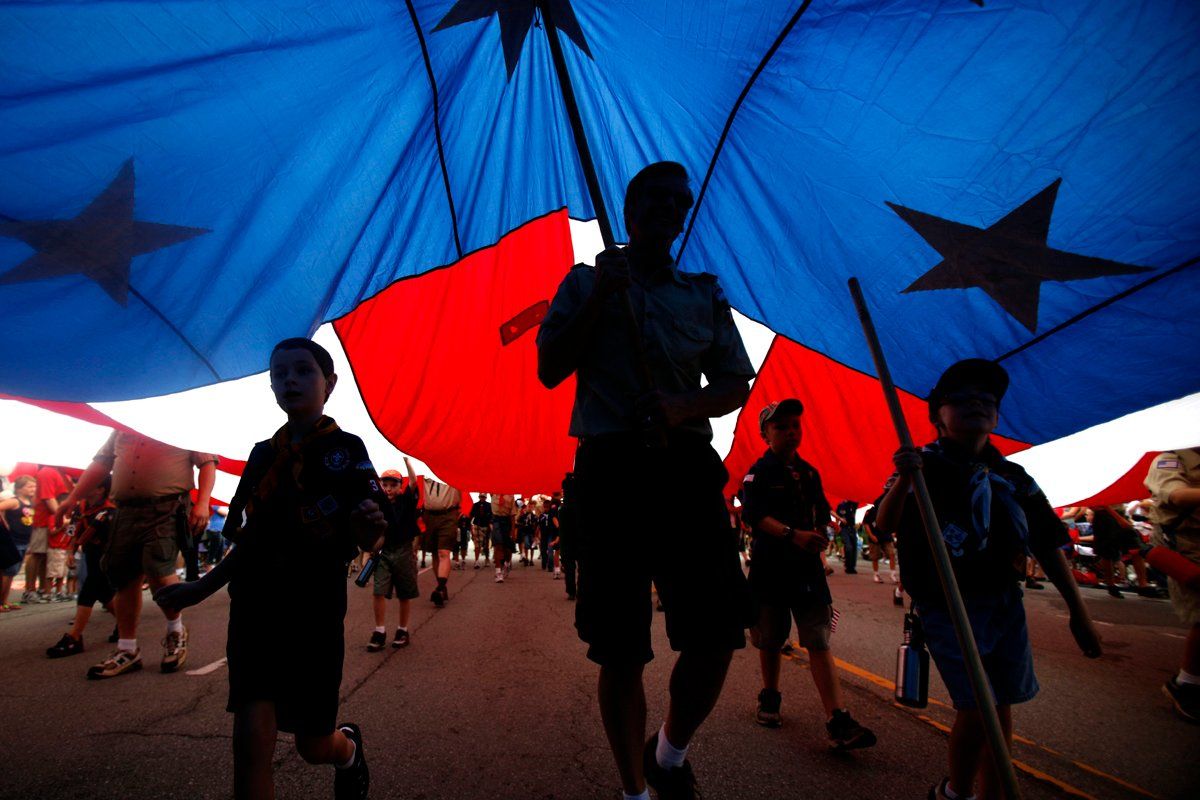
In this summer of our discontent, Americans arrive at the Fourth of July full of doubt and disappointment. The sickly economy is the main cause; if unemployment were 8 million (about 5.2 percent) instead of 14 million (9.1 percent), Americans would feel better. But we are also unhappy with our democracy—though hardly anyone says so—and this goes to the heart of how we see ourselves.
We are fiercely patriotic. The overlooked reality in the debate about American "exceptionalism" is that most Americans don't believe it's debatable. In a 2010 poll, 77 percent of us said that "whatever its faults," the United States "has the best system of government in the world." In the 2003–04 World Values Survey, 74 percent of Americans felt strongly that they'd "rather be a citizen of my country than any other." This surpassed any other nationality. Comparable responses were 58 percent for Canadians, 37 percent for South Koreans, and 18 percent for Germans.
Our huge national pride—which often strikes others as arrogance—rests on economic accomplishments and even more on what scholars call the American Creed: faith in freedom; the rule of law; equal opportunity; and democratic ideas and political institutions. What defines us (and this differs from most societies) is not ethnicity, race, or religion but our bedrock beliefs. Unfortunately, widely shared values do not settle most specific conflicts.
We are now engaged in a messy debate over big budget deficits and the size of government. The struggle nominally pits liberals against conservatives, but this is misleading. The real debate involves reactionaries vs. radicals. Many liberals are reactionaries and many conservatives are radicals.
A reactionary is someone who, says Webster's Collegiate Dictionary, desires "a return to an earlier system or order." This defines many liberals. They "pine," Michael Barone writes in The Wall Street Journal, for "the golden years of the 1940s, '50s and early '60s [when] Americans had far more confidence in big government." Modern liberals want yet bigger government to enhance social justice. They defend virtually all Social Security and Medicare benefits. Everything can be financed, they suggest, by cutting defense or increasing taxes on the rich.
Conservatives have become radical by seeking "drastic political, economic or social reform." Their obsession with tax cuts when even today's taxes don't cover today's spending implies radically shrinking government programs that are woven into America's social fabric. All this ignores a basic conservative tenet: to respect existing institutions and traditions that anchor the social order. Change—especially radical change—is a last resort, not because today's world is perfect but because efforts to improve it might make it worse.
Both visions are unrealistic. Given an aging population—which boosts Social Security and Medicare spending—government is automatically expanding. Since 1971, federal spending has averaged 21 percent of the economy (gross domestic product); just continuing present programs could easily raise that to 28 percent of GDP by 2021. The liberal reactionaries can't smoothly finance that. In 2011, the deficit is already twice the entire defense budget. The richest 10 percent already pay 55 percent of federal taxes. The blanket embrace of all benefits for the elderly—no matter how rich—will require much higher taxes or steep cuts in other programs, including those for the poor.
The conservative radicals are no better. Since 1971, federal taxes have averaged about 18 percent of GDP. There is no believable plan to reduce federal spending below that level, even with sizable cuts in Social Security and Medicare benefits. So promises of more tax cuts either border on dishonesty or imply huge unspecified spending cuts that would devastate national defense, states and localities, and the poor.
A dilemma of democracy is the difficulty of making changes that, though essential for society's long-term well-being, are unpopular in the short run. That describes today's budget deadlock. To be sure, not all conservatives and liberals have become radicals and reactionaries. But many have. If we applied true labels to them—reactionaries and radicals—we would clarify the debate and compel them to deal with the world as it exists, not as they imagine it. Dream on.
Our politicians prefer self-serving fantasies. Americans are misinformed, and consensus becomes harder. Democrats won't admit the need for major benefit cuts in Social Security and Medicare; Republicans won't concede the necessity for higher taxes. The result is that our leaders are now playing a game of brinkmanship over raising the federal debt ceiling or defaulting. Liberals say spending cuts now would subvert the recovery; conservatives find that an excuse not to cut. Surely a compromise would be phasing in credible future cuts.
All this from "the world's greatest nation." It lowers our competence and elevates our national embarrassment. Altogether, an unhappy birthday.
This column originally appeared in The Washington Post.
Uncommon Knowledge
Newsweek is committed to challenging conventional wisdom and finding connections in the search for common ground.
Newsweek is committed to challenging conventional wisdom and finding connections in the search for common ground.
About the writer
To read how Newsweek uses AI as a newsroom tool, Click here.








